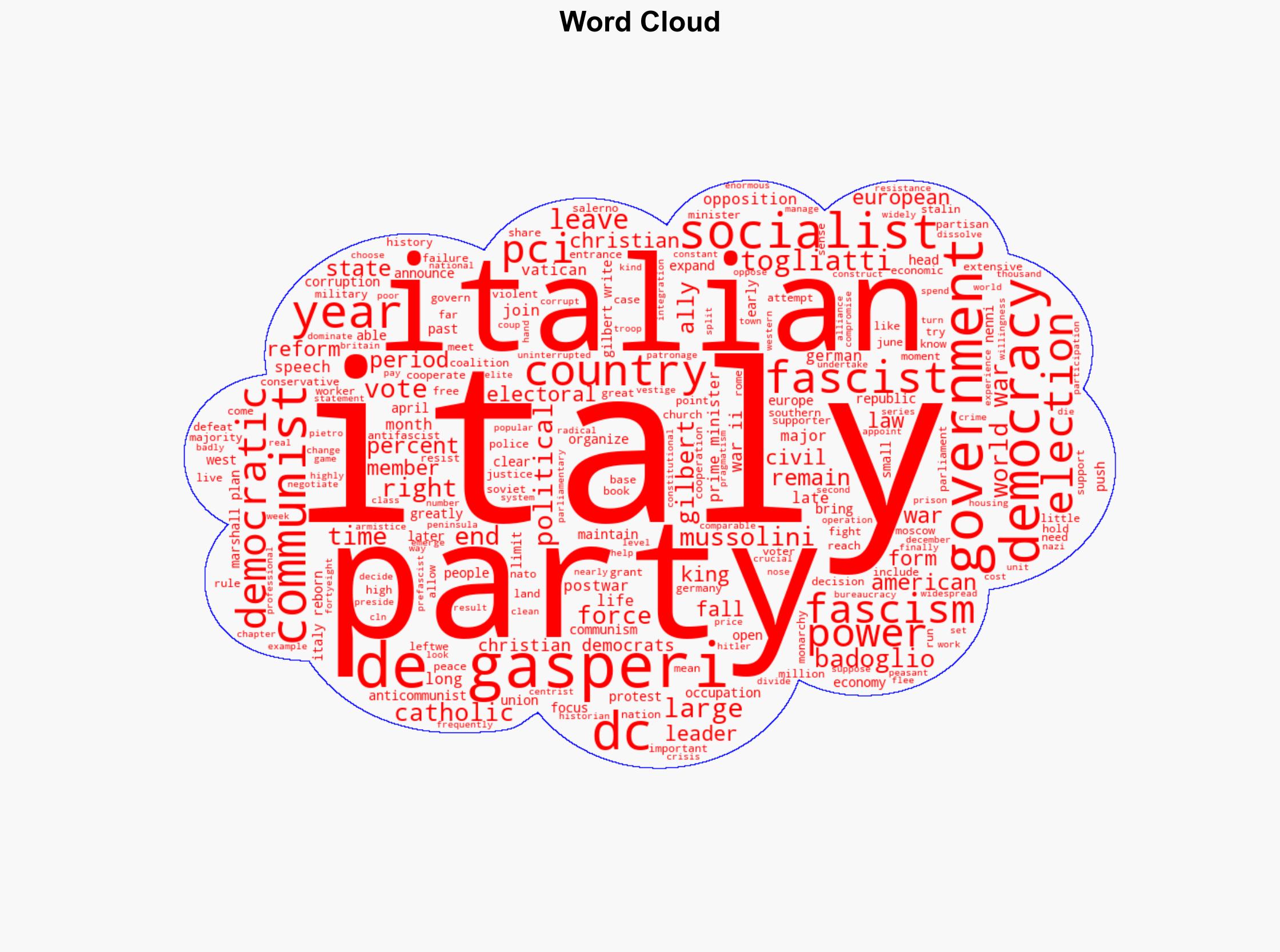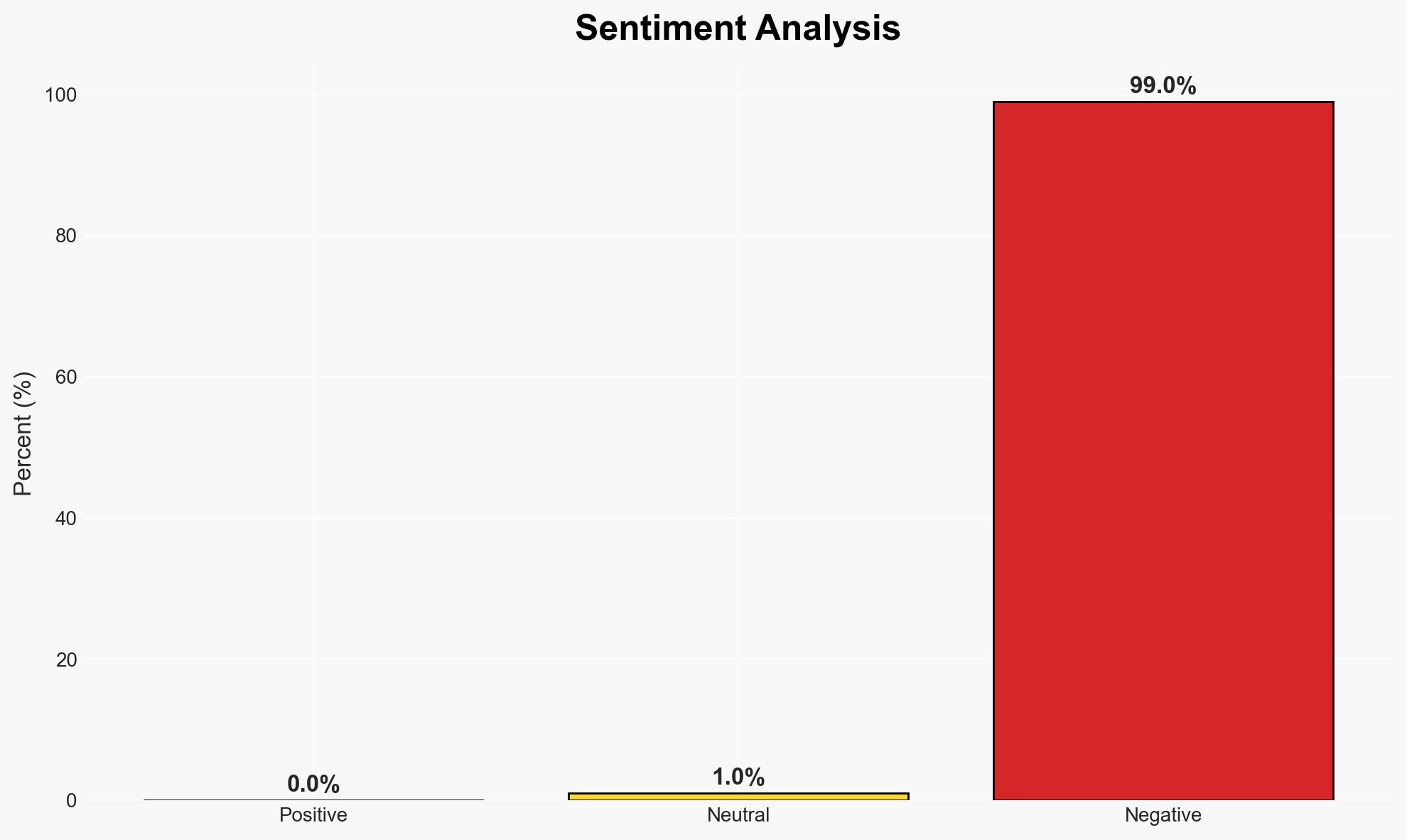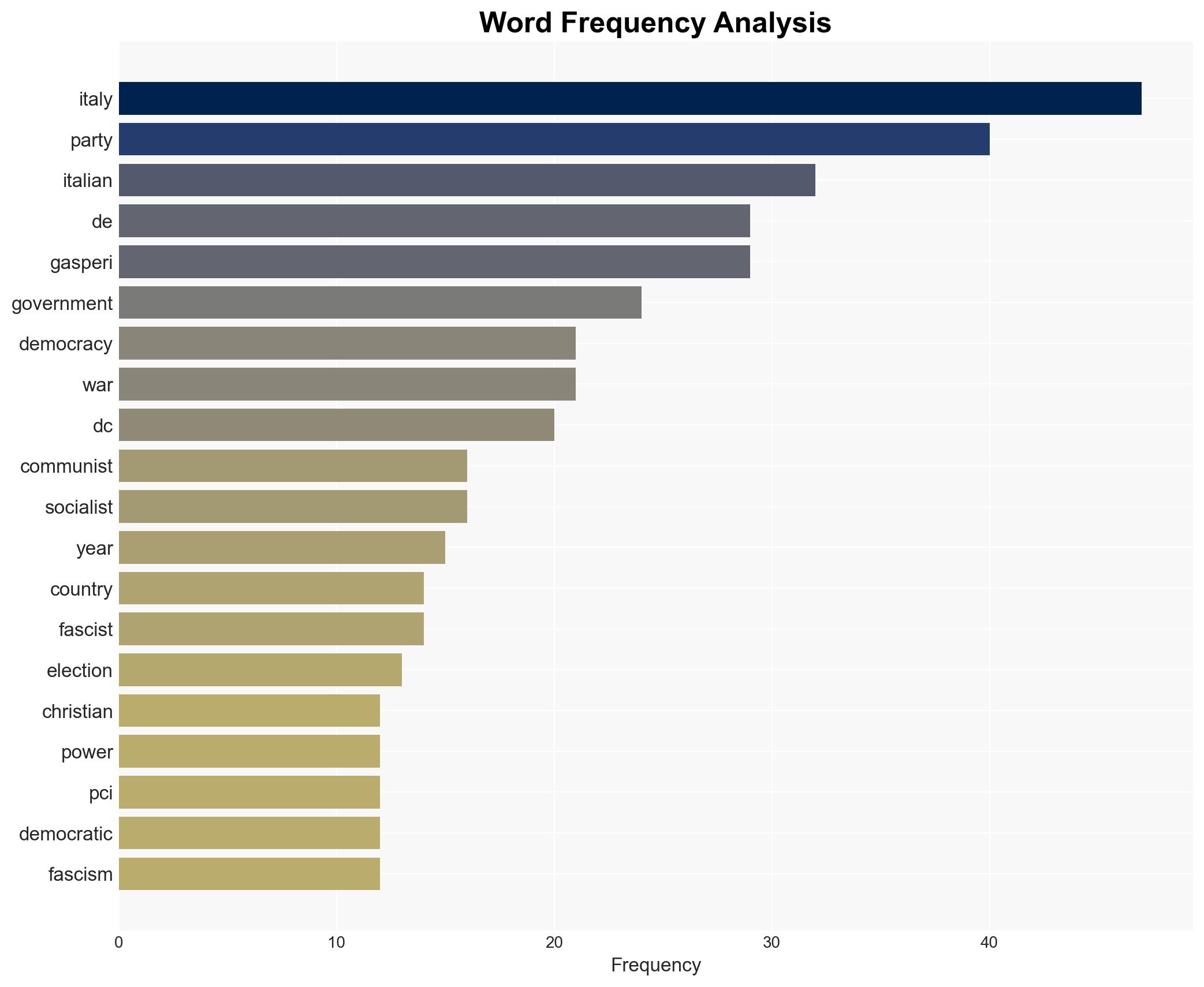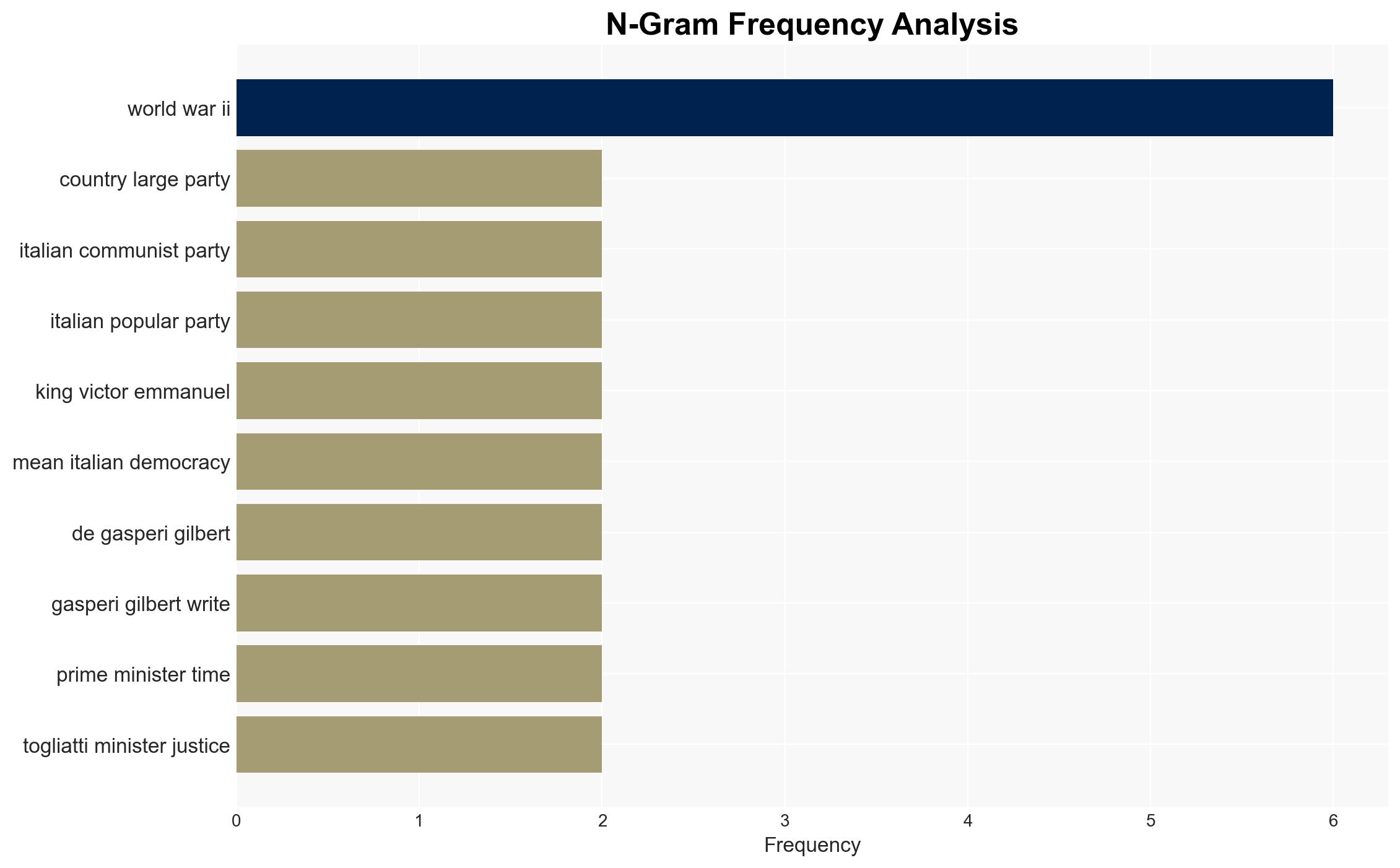Italian Political Landscape: The Enduring Influence of Christian Democracy Amidst Corruption and Instability
Published on: 2025-11-27
AI-powered OSINT brief from verified open sources. Automated NLP signal extraction with human verification. See our Methodology and Why WorldWideWatchers.
Intelligence Report: Democracy Italian Style
1. BLUF (Bottom Line Up Front)
The Italian political landscape has historically been characterized by a dominant Christian Democracy (DC) party, which maintained power through coalition-building and patronage systems. The collapse of the DC in the early 1990s led to a significant political realignment. The most likely hypothesis is that the current political environment remains influenced by past corruption and instability, with moderate confidence in this assessment.
2. Competing Hypotheses
- Hypothesis A: The fall of the Christian Democracy party led to a more transparent and stable political system in Italy. Supporting evidence includes the initiation of anti-corruption investigations like Operation Clean Hands. However, uncertainties remain about the long-term effectiveness of these reforms.
- Hypothesis B: The collapse of the DC resulted in continued political instability and corruption, merely shifting power dynamics without substantive reform. This is supported by the persistence of patronage and corruption allegations. Contradicting evidence is the initial success of anti-corruption efforts.
- Assessment: Hypothesis B is currently better supported due to ongoing reports of political instability and corruption. Indicators such as new corruption scandals or political reforms could shift this judgment.
3. Key Assumptions and Red Flags
- Assumptions: The political culture in Italy remains influenced by historical patronage systems; anti-corruption measures have limited reach; political instability is a persistent feature.
- Information Gaps: Detailed current data on the effectiveness of anti-corruption measures and the influence of organized crime on politics.
- Bias & Deception Risks: Potential bias in sources reporting on political corruption; risk of underestimating the resilience of patronage networks.
4. Implications and Strategic Risks
The evolution of Italy’s political system could impact its role within the EU and NATO, affecting regional stability and economic policies.
- Political / Geopolitical: Potential for shifts in EU alignment and policy priorities; risk of rising populism or nationalism.
- Security / Counter-Terrorism: Continued political instability may provide opportunities for organized crime and extremist groups.
- Cyber / Information Space: Vulnerability to misinformation campaigns exploiting political divisions.
- Economic / Social: Economic stagnation could exacerbate social unrest and reduce public trust in institutions.
5. Recommendations and Outlook
- Immediate Actions (0–30 days): Increase monitoring of political developments and corruption cases; engage with Italian authorities on anti-corruption initiatives.
- Medium-Term Posture (1–12 months): Strengthen partnerships with Italian law enforcement; support civil society initiatives promoting transparency.
- Scenario Outlook: Best: Political reforms lead to increased stability; Worst: Escalation of corruption and instability; Most-Likely: Continued political volatility with periodic reforms.
6. Key Individuals and Entities
- Not clearly identifiable from open sources in this snippet.
7. Thematic Tags
Counter-Terrorism, political instability, corruption, coalition politics, European Union, organized crime, anti-corruption, Italy
Structured Analytic Techniques Applied
- ACH 2.0: Reconstruct likely threat actor intentions via hypothesis testing and structured refutation.
- Indicators Development: Track radicalization signals and propaganda patterns to anticipate operational planning.
- Narrative Pattern Analysis: Analyze spread/adaptation of ideological narratives for recruitment/incitement signals.
- Network Influence Mapping: Map influence relationships to assess actor impact.
Explore more:
Counter-Terrorism Briefs ·
Daily Summary ·
Support us





